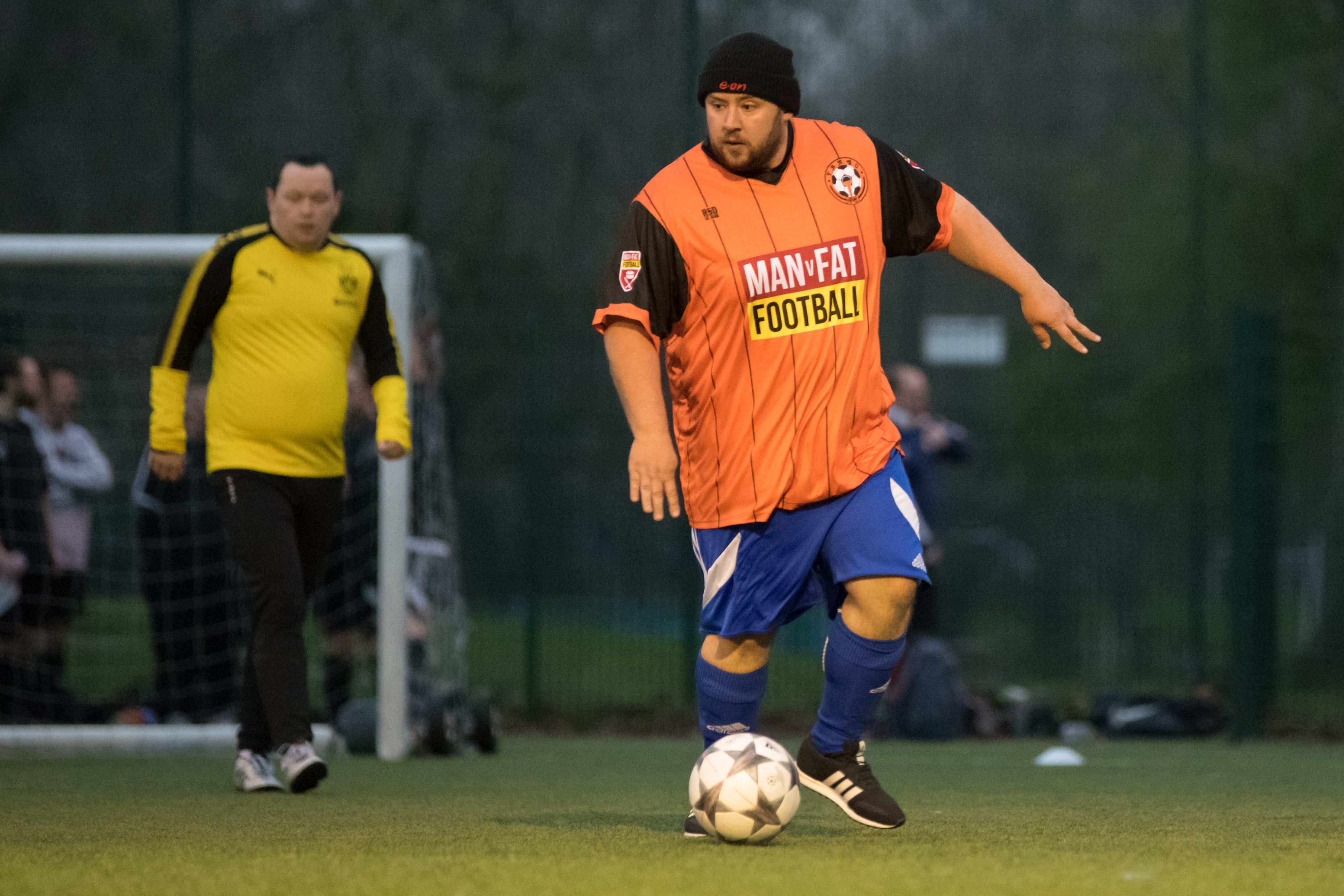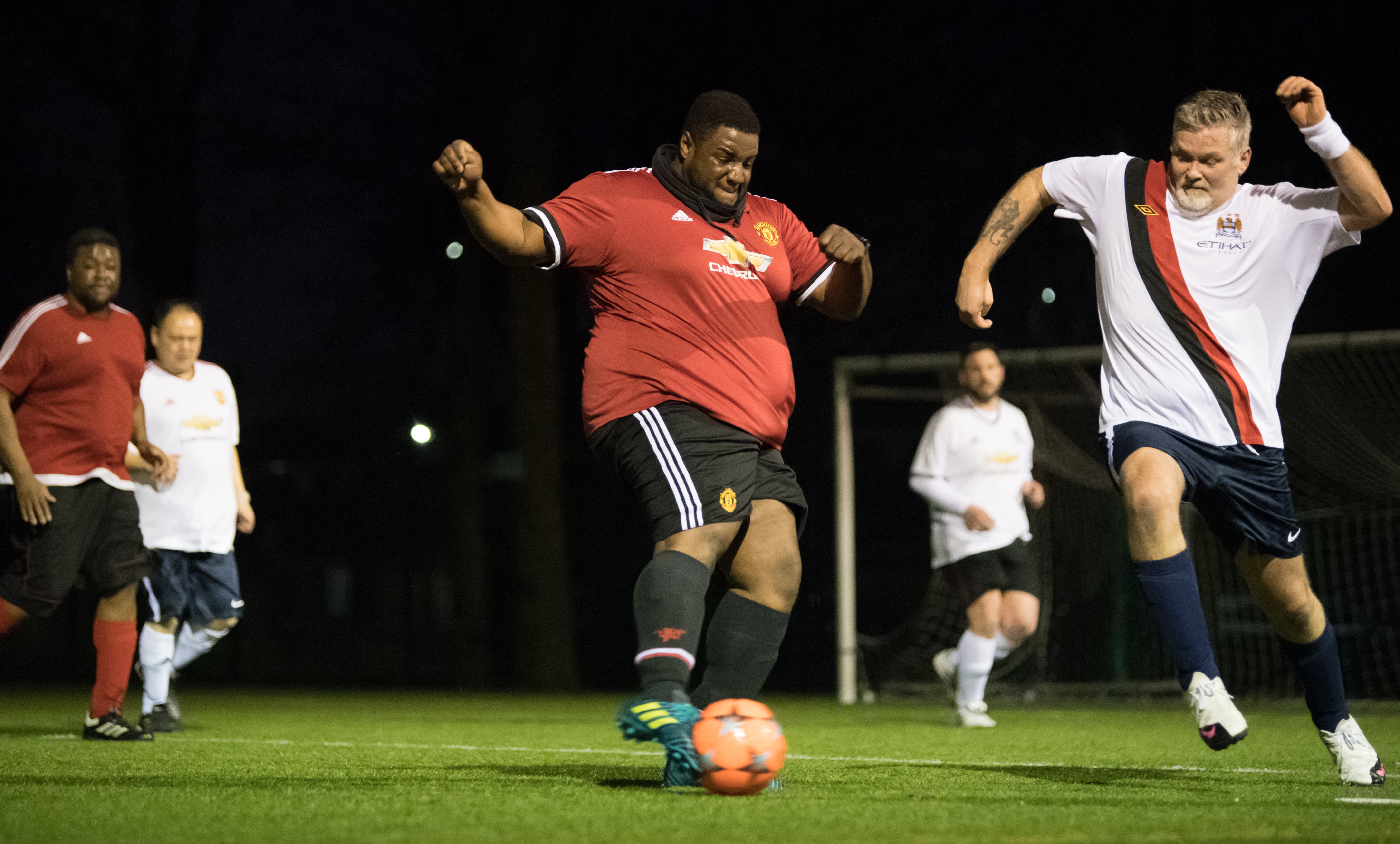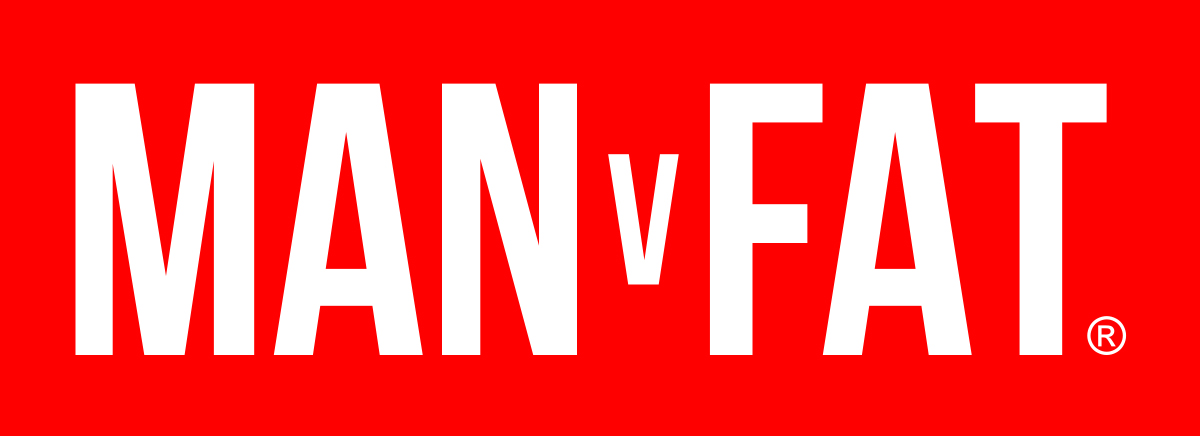 Designed exclusively for overweight men, MAN v FAT Football now has more than 60 leagues across the UK and is about to launch in Australia. Uniquely, its leagues are won not just by points won, but by pounds lost. Since its launch in 2014, players have cumulatively lost over 116,000 pounds. ConnectSport spoke to founder and Managing Director, Andrew Shanahan, on the challenges of getting the inactive active.
Designed exclusively for overweight men, MAN v FAT Football now has more than 60 leagues across the UK and is about to launch in Australia. Uniquely, its leagues are won not just by points won, but by pounds lost. Since its launch in 2014, players have cumulatively lost over 116,000 pounds. ConnectSport spoke to founder and Managing Director, Andrew Shanahan, on the challenges of getting the inactive active.
Hi Andrew, tell us what gave you the inspiration to start MAN v FAT Football?
It was in 2014. I was stressed and working too hard. I was getting home at 10pm, grabbing some beer to speed-relax and eating on the go. I weighed just under 18 stone. I began looking for weight loss solutions and could find nothing that focused on men, which surprised me. I was a journalist, so I became interested in researching and writing about it and it became more and more clear there was a real need for a community or a platform for men to facilitate supporting each other. Clearly that’s what creates the most sustainable impact.
So were you typical of the type of man who now joins a MAN v FAT league?
Yes, so many of the men we work with haven’t been active in well over a decade. These are guys who are passionate about football and who sometimes played to quite a high level but they have found that when you stop playing it's very easy to put on weight - you can see that even with pundits who are ex-pros, they can gain weight too. In fact, if you’re taking in more calories than you’re expending, it’s a biological certainty.
For these guys going for a kick-around in their local Powerleague is just not an enjoyable or comfortable experience for them – everyone else is much thinner, quicker and younger. They’re usually too young to play walking football so there’s this area in the middle full of men who feel disenfranchised from sport and feel that their weight is a massive barrier. For them, MAN v FAT Football is a gateway drug into the world of activity.
Tell us about your project with Sport England
I connected with Mike Diaper (Sport England’s Director of Community Sport) and invited him along to watch one of our leagues. He really liked what he saw. It tallies so well with Sport England’s mantra of getting more people, more active, more of the time. They commissioned us to launch leagues in 20 areas of deprivation across the country in a one-year project.
There are strong statistical links between areas of deprivation and obesity, and clearly this gave us an extra layer of challenge because the attitudes to health in those locations are often more difficult to penetrate when people are under financial restraints. After all, if you’re struggling to pay the rent you’re usually not thinking about treating yourself healthily, life is just about getting through to the next pay day. There may be additional problems with alcohol or smoking. In seeking success here, there has to be a large degree of acceptance that we can’t necessarily bypass those concerns.
So how did you change your marketing to attract this slightly different audience?
I would love to say it’s just a case of tweaking one or two things, but it’s not. It’s a complex issue. I’m pleased to say we are doing well in these areas, a lot better than traditional weight-loss interventions, but we are still trying to understand the different factors that are in play.
Being able to offer leagues for free, thanks to Sport England funding, is a big factor, but it’s about offering a wider-value proposition to these guys than just ‘come and lose weight’, and most of all it’s about consistency of offering.
A lot of the time with initiatives and schemes that are thrown at areas of deprivation, funding dries up and they disappear. That leads to ‘initiative-itis' for the people in those areas. They think 'your marketing has reached me, but is it worth me committing?' That contrasts with what parkrun do so brilliantly – it is there every week regardless, so they have built up trust that it’s something worth throwing yourself into.
We have a real commitment in our leagues in the areas of deprivation to ensuring players persist to the paid phase, where they are sticking with it. We don’t see as big a drop-off at that point as you might expect. Our scheme is £6 a week after the first season, which we don’t find is a deal-breaker once people have made that mental step of choosing to invest in their health and when they have seen the dramatic results that players can have across a season - they see that and want more.

What are the other key factors in attracting people?
Patience. It might be three seasons of them knowing this thing exists around the corner before they actually put their boots on and come and have a look, or before they’re convinced to turn up by a mate who’s lost two stone in the last season.
That’s not something that sits well with me because I’m a deeply impatient person, but I can see why people in those areas of deprivation deserve that patience. We have to go beyond that patience threshold to prove that we’re still going to be here for the long term.
I wouldn’t consider us to be at a point where we’ve cracked it. I would love nothing more than to say we’ve got that skeleton key that unlocks access to those people in those areas of deprivation and help them lead healthier lives. But we haven’t. I suspect there isn’t that magic wand – but patience and consistency of provision are fundamental.
We are pleased with how the project is going and we are on course to exceed Sport England’s target of establishing 20 leagues in these areas. The evaluation is being done by the University of East Anglia and will come out early next year. That will be a really useful document for us and other organisations for learning about activity for inactive men.

What other challenges have you faced?
We always look for funding for every league we run around the country. We knock on public health doors but that pot is dwindling – although we still find a number of really engaged and passionate people in public health who want to help improve the health of the public but are being given diminishing budgets to achieve that goal. We ask local and national companies if they will sponsor a league or player to improve the health of their employees and have a heart for their local community. I have to say I have been stunned by how heartless companies can sometimes be.
I’m probably incredibly naïve, but I see a lot of lip service paid to Corporate Social Responsibility which very promptly peters out into silence when you offer them an opportunity to follow that up with action. If people reading this interview can point me towards good examples of companies investing in the health of their local communities and their customers, I would be love to be proved wrong.
Ultimately, companies owe it to their employees to be much, much more engaged with their health. It’s getting to a point where I don’t see any other way than the Government mandating companies to do it, or at least offering tax incentives so that companies prioritise their staff's physical and mental health. They have a responsibility which unless they’re pushed on, I think they are happy to escape.
We are a limited company so we exist on this being paid for by consumers. The public health pot is drying up, so we need to have an offer enticing enough to people that they would willingly pay for it. I know that’s unusual, but I think that’s the benchmark. Commissioners like evaluation but to me the one statistic that matters is, what percentage of people would pay to do this? That, to me, answers all the subsequent questions.
 Find out more about Man v Fat Football on their ConnectSport directory page. To add your organisation to the directory, contact hello@connectsport.co.uk
Find out more about Man v Fat Football on their ConnectSport directory page. To add your organisation to the directory, contact hello@connectsport.co.uk












